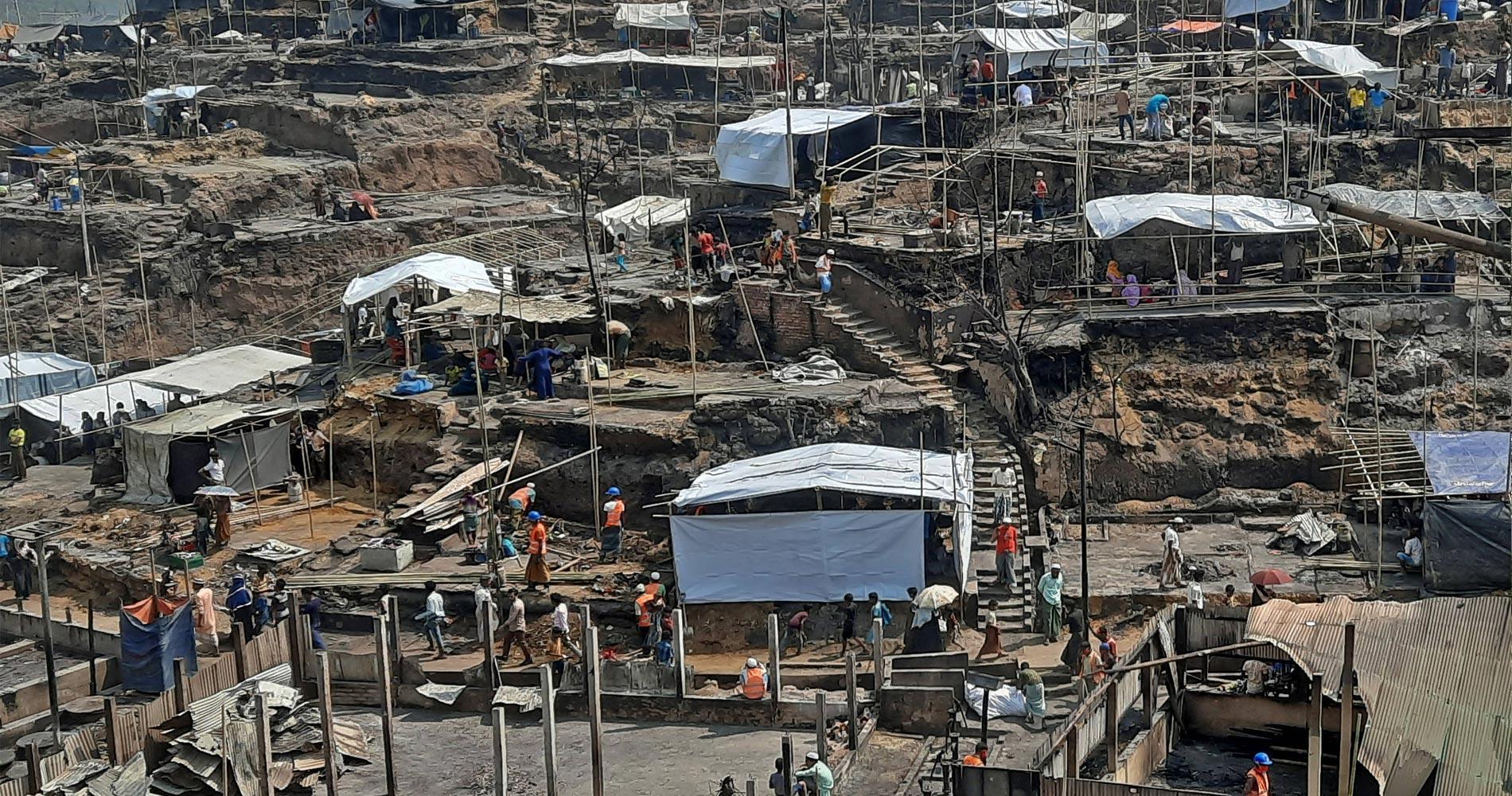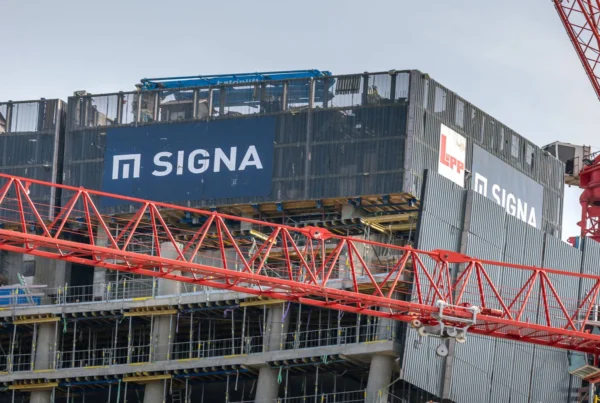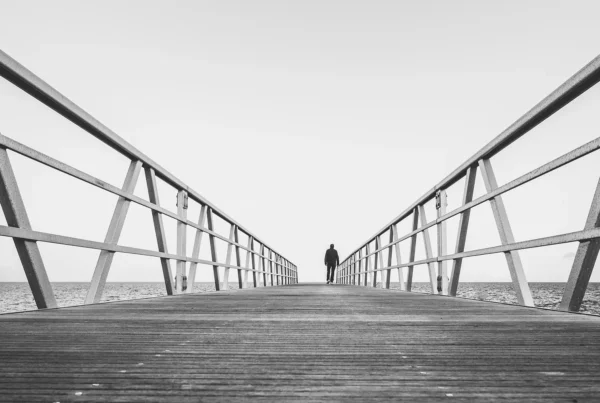While the West is pouring billions of dollars/euros into arming and aiding Ukraine, the genocide perpetuated against the Rohingya remains largely ignored. The refugee crisis of Myanmar and Bangladesh continues and the miserable plight of the Rohingya people, who are deprived of their basic human rights, citizenship, and freedoms, remains unsolved. With elections in Bangladesh approaching in January 2024, the Rohingya refugee question remains a top priority for any new government. Will the Rohingya, living in the world’s largest refugee camp in Bangladesh, ever be able to voluntarily repatriate to their homelands, or have the conditions to return become so dangerous, that the stateless Rohingya will choose survival over an uncertain future in Myanmar?
Meric Sentuna Kalaycioglu, 28 July 2023
The Rohingya, a predominantly Muslim minority group residing mainly in Myanmar’s Rakhine State for centuries, have endured decades of systematic oppression and brutality, resulting in widespread displacement and the flight of refugees to neighboring Bangladesh and other countries. The United Nations (UN) has described the Rohingya as “the most persecuted minority in the world.” The Biden administration has declared the Rohingya humanitarian catastrophe a genocide perpetuated by Myanmar’s military, with the complicit support of political leaders. The struggles of the Rohingya have been further exacerbated by the devastating impact of natural disasters, such as the recent Mocha cyclones that hit Rakhine State in May 2023.
Political Crisis in Myanmar and the Rohingya
Myanmar’s political journey has been characterized by its efforts to establish democratic frameworks in the face of divergent factions. The decisive triumph of Aung San Suu Kyi’s National League for Democracy (NLD) in the 2015 general election fostered optimism for the successful completion of a democratic transformation. Yet upon assuming the position of state counsellor, she faced criticism by the international community due to Myanmar’s lack of action to protect the Rohingya in Rakhine State against the onslaught by the military and for refusing to acknowledge the military’s involvement in these massacres. In 2019, Aung San Suu Kyi made an appearance at the International Court of Justice, where she defended the military against allegations of genocide targeted at the Rohingya population. Despite her efforts to cover for the military’s massacres, the generals orchestrated a coup in February 2021, deposing the democratically elected government and imprisoning several political figures, including Aung San Suu Kyi herself. These actions by the military have triggered extensive protests and garnered widespread international condemnation, leading to a period of ambiguity and instability in the country.
Médecins Sans Frontières (Doctors without Borders) has been working in Cox’s Bazar for decades. According to their records, over one million medical consultations were delivered to Rohingya refugees in the settlement from August 2017 to February 2019 alone. In 2020 a total of 1880 all-cause deaths were reported, of these 733 were under 5 years old. Every year, the number of lives claimed increases exponentially, not only due to poor health conditions but also as a result of fires. Dozens lost their lives, and thousands were left without shelter after 222 ‘fire incidents’ took place between January 2021 and December 2022 at refugee camps in Cox’s Bazar, of which at least 30% were caused by arson.
Challenges of Repatriating Rohingya Refugees
The repatriation of Rohingya refugees has been an issue between the governments of Bangladesh and Myanmar since 1992, the year that marked a major mass outflow from Rakhine State to Bangladesh, with more than 250 000 Rohingya refugees fleeing forced labor, rape, and religious persecution at the hands of the junta.
Discussions about the repatriation of the Rohingya have resurfaced since 2017 and gained momentum in recent months. The Myanmar government has designed a pilot repatriation project for Rohingya refugees to return to Myanmar and announced its intention to take back an initial group of 1140 individuals from a list of 800 000. The pilot project is an outcome of a bilateral agreement between Myanmar and Bangladesh, with mediation from the Chinese government and support from ASEAN, the alliance of Southeast Asian countries. It is worth noting China’s active involvement in this issue. Myanmar’s political stability seems to be a priority for China for several reasons, primarily its commercial interests in Myanmar and its desire to ensure a presence in the Indian Ocean through the advantageous geopolitical position of the country, especially the Rakhine region. Under China’s Belt and Road Initiative, maintaining good relations with Myanmar is essential as the country plans to create an energy corridor from Rakhine State’s oil and gas fields to China’s Yunnan province.
Within the framework of the pilot project, Rohingya refugees will be prohibited from returning to their original villages, as numerous settlements were completely destroyed during the genocidal assaults in 2017. Instead, the refugees will undergo processing in reception and transit centers located in Rakhine State. Subsequently, they will be relocated to 15 newly established villages within a designated area and will not have unrestricted freedom to move in and out. Human Rights Watch reported that Rohingya refugees who were part of the go-and-see visits in these villages said that the detention-like conditions and lack of full citizenship rights were not conducive to a safe return.
There are also growing concerns about reports of refugees being coerced to repatriate. Considering the dire situation of the Rohingya living in the camps in Rakhine State, it is only natural to understand the skepticism of the refugees. They perceive this repatriation project as another trap by the junta government to take the Rohingya back and continue their oppression. In March 2023, the UN Refugee Agency (UNHCR) described the conditions in Myanmar’s Rakhine State as “not conducive to the sustainable return of Rohingya refugees” and reiterated that every refugee had the right to return to their home country based on an informed choice, but no refugee should be forced to do so.
The way forward
The repatriation of Rohingya refugees has been a complex and protracted process, further complicated by the ongoing political crisis in Myanmar. The safe and voluntary return of Rohingya refugees requires addressing several crucial factors, including the restoration of their citizenship rights, of which they were stripped under the 1982 Citizenship Act, provision of security guarantees, and accountability for past atrocities.
With the general election only six months away, the Government of Bangladesh finds itself in a challenging situation as the burden on its already strained resources intensifies, the effects of climate change become more pronounced, and the prospect of voluntary repatriation of the Rohingya are at an all-time low.
The Rohingya crisis has persisted for nearly six years with no solution in sight. As the international community focuses its undivided attention on the war in Ukraine, the refugees’ plight is being forgotten and the Rohingya sadly remain “the most persecuted minority in the world”.
While the political crisis unfolded, the ongoing Rohingya crisis, which has afflicted Myanmar for decades but especially since 2017, persisted. In August 2017, in response to attacks by an armed group affiliated with the Rohingya, security forces initiated a campaign of widespread atrocities, including killings, rape, and extensive arson, targeting the Rohingya population in northern Rakhine. This merciless military campaign led to the displacement of over 700 000 individuals who were forced to seek refuge across the border in Bangladesh. The plight of the Rohingya who remain in Rakhine State, effectively held under conditions resembling apartheid, has largely been overlooked.
The establishment of camps in Rakhine State started in 2012, supposedly to accommodate those displaced by communal violence. However, their actual purpose was to support the oppressive regime’s system of isolating the Rohingya, persecution, and imprisonment. Families were confined to temporary bamboo longhouses, originally intended to last for just two years. Despite pleas from aid agencies, the authorities denied their requests for sufficient land and resources to improve the safety of the camps situated in flood-prone former paddy fields and low-lying coastal areas. As a result, the deliberately poor living conditions have led to an increasing number of preventable deaths due to extreme weather events, such as the Mocha Cyclone in May 2023, which destroyed the camps and at least killed 400 Rohingya. According to the Arakan Rohingya National Alliance the death toll is believed to be much higher with hundreds missing.
Rohingya in Bangladesh
In 2017, fleeing persecution and violence in their homeland of Rakhine State in Myanmar, Rohingya sought shelter in overcrowded and under-resourced camps, such as the ones in Cox’s Bazar, located in Bangladesh, which has mushroomed into one of the largest refugee settlements in the world with its one million residents. Living in makeshift shelters made of bamboo and tarpaulin, the Rohingya face immense challenges. Access to clean water, sanitation facilities, and healthcare remains limited, posing severe health risks. Malnutrition, infectious diseases, and mental health issues afflict the community, particularly women, children, and the elderly.







